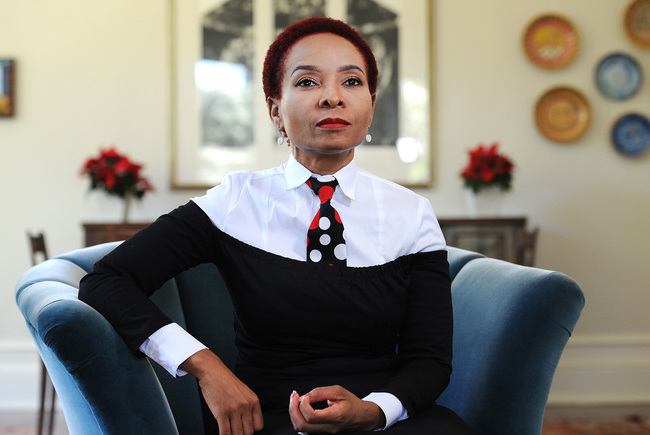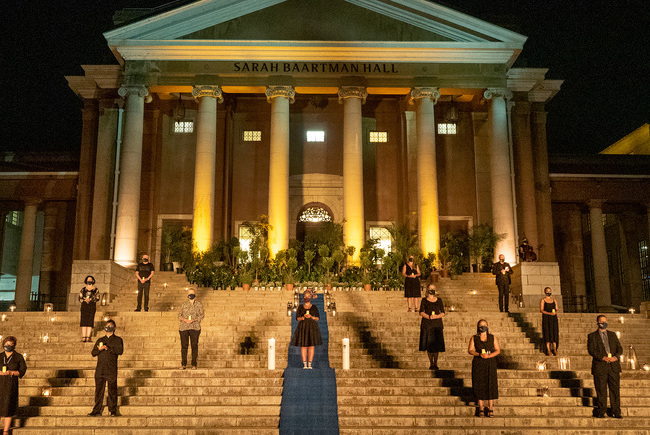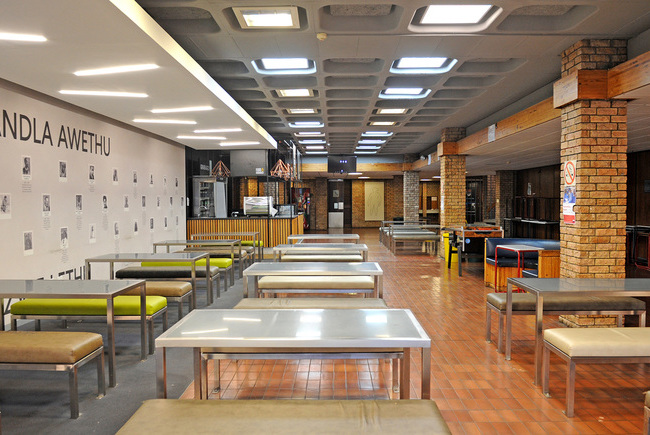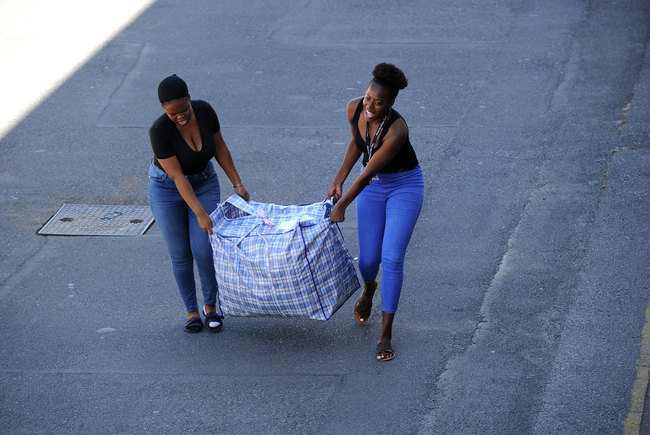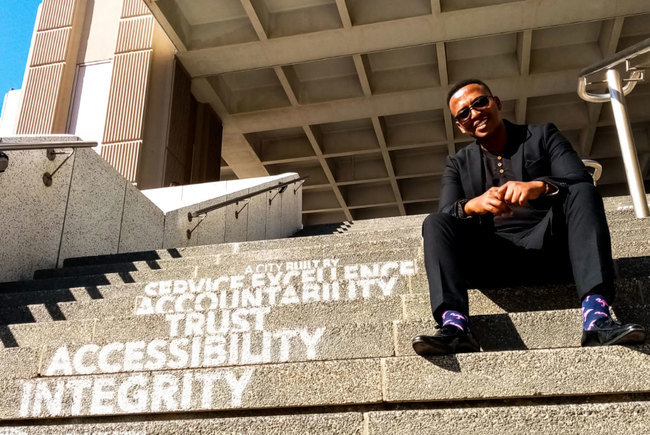COVID-19: a ‘teachable’ moment
18 May 2020 | Story Niémah Davids. Photo Michael Hammond. Read time 5 min.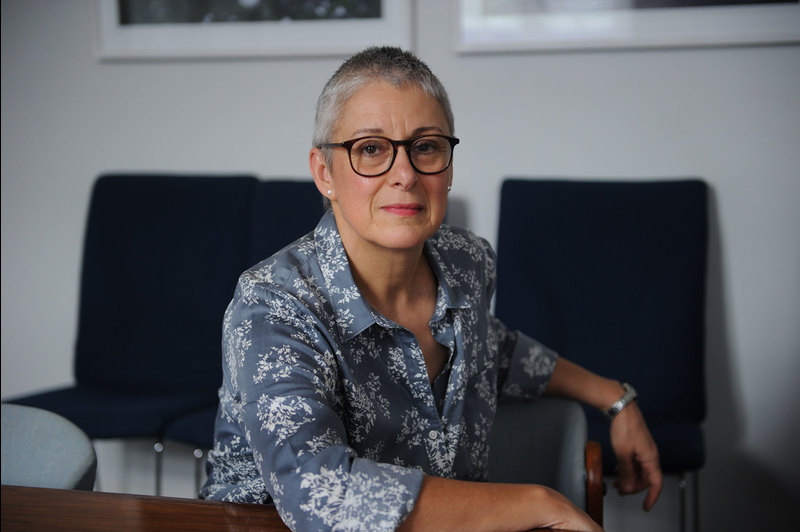
As the University of Cape Town (UCT) enters the third week of emergency remote teaching and learning, the executive has committed to supporting both academics and students adapt to the new temporary learning methodology.
Formal online learning kicked off on Tuesday, 28 April after a week-long orientation session to help students familiarise themselves with the online learning environment.
While the new form of learning comes with a list of challenges, which includes “accentuating” inequality in South Africa, UCT’s Deputy Vice-Chancellor (DVC) for Teaching and Learning, Associate Professor Lis Lange reiterated that it was the only feasible alternative to salvage the academic year.
Lange was speaking at a special staff assembly on Thursday, 14 May. The virtual event was convened to communicate the university’s overarching response to the COVID-19 pandemic and to share the executive’s plans on a phased return to work at UCT.
“We are fully aware of the limitations of remote teaching and learning and the risks it poses.”
“We are fully aware of the limitations of remote teaching and learning and of the risks it poses pedagogically, politically and ethically,” she said.
“We have made this decision with our eyes wide open. We have taken the view that in order to implement remote teaching, we need to manage the risks it poses to UCT educationally, socially and organisationally.”
Establishing a Task Team
Lange said a Teaching Online Task Team has been set up to lead the remote online learning process and to further understand students’ needs.
The task team’s work kicked-off with a student survey to help them identify students’ readiness to proceed with online learning and determine their level of access to electronic devices, as well as data.
She said many decisions taken during this process, which included proving each student with a laptop computer and 40GB of data to continue their academic programmes, have been informed by this survey. For students living in remote parts of the country who are unable to access the internet, the university continues to distribute printed learning materials and USB drives to ensure they keep up with their courses.
“This survey has been very useful to understand the profile of our students and to plan better. It has provided the coherence we needed and set the foundation for our plans,” she said.
High level interventions
To ensure the ultimate success of remote teaching and learning and that staff and academics adjust, UCT has introduced several tools and interventions, Lange said.
She said the Centre for Innovation in Learning and Teaching (CILT), based in the Centre for Higher Education and Development (CHED), has guided academics on how to redesign their academic programmes by tailoring courses towards low-tech solutions compatible with no access to broad bandwidth.
To mitigate students’ anxieties, Lange said the university acknowledges that most students will only be able to learn remotely for 30 hours per week, and has adjusted the academic calendar to accommodate students’ needs.
“One of the academic risks of moving our courses into emergency remote teaching is keeping the integrity of our programmes and the value of our qualifications.”
Most courses will use a continuous assessment model and faculties will allow students to “carry lighter loads”. Academic exclusions will not take place either, she added.
“One of the academic risks of moving our courses into emergency remote teaching is keeping the integrity of our programmes and the value of our qualifications. At curricular level, we trust academics in content management,” Lange said.
Imperfect path
Lange said she recognises that “the path we chose is not perfect”, and that despite the university’s best efforts, “catching all our students in the net of support we have developed” will not be possible. But the university is committed to doing everything it can “to deal with the current circumstances in a fair and supportive manner”.
She said the next three weeks will be critical to assess the progress of remote online teaching and the team will be able to identify the students who are managing and students who need additional support.
“The COVID-19 pandemic has jump started change that would have taken us a year of debate to implement. It has opened important areas of enquiry in terms of curriculum, inequality, pedagogy and technology,” she said.
“During the debate for and against online teaching was the need to make COVID-19 a teachable moment. I believe this is a worthwhile discussion.”
 This work is licensed under a Creative Commons Attribution-NoDerivatives 4.0 International License.
This work is licensed under a Creative Commons Attribution-NoDerivatives 4.0 International License.
Please view the republishing articles page for more information.
UCT’s response to COVID-19 in 2021
COVID-19 is a global pandemic that caused President Cyril Ramaphosa to declare a national disaster in South Africa on 15 March 2020 and to implement a national lockdown from 26 March 2020.
UCT is taking the threat of infection in our university community extremely seriously, and this page will be updated regularly with the latest COVID-19 information. Please note that the information on this page is subject to change depending on current lockdown regulations.
Commemorating a year of COVID-19
At midnight on 26 March 2020, South African went into the first nationwide hard lockdown. A year later, we remember those who have died and those who have been affected by COVID-19, as well as the pandemic’s effects across society and campus. We are especially grateful for the front-line health workers who have done so much for so many.
Frequently asked questions
In an email to the UCT community, Vice-Chancellor Professor Mamokgethi Phakeng said:
“COVID-19, caused by the virus SARS-CoV-2, is a rapidly changing epidemic. [...] Information [...] will be updated as and when new information becomes available.”
We are continuing to monitor the situation and we will be updating the UCT community regularly – as and when there are further updates. If you are concerned or need more information, students can contact the Student Wellness Service on 021 650 5620 or 021 650 1271 (after hours), while staff can contact 021 650 5685.





